Normal Letter Recognition Worksheets for Ages 5-8
83 filtered results
-
From - To
Enhance your child's early literacy skills with our Normal Letter Recognition Worksheets, designed specifically for ages 5-8. These engaging, printable activities support young learners in identifying both uppercase and lowercase letters through fun exercises that blend learning with creativity. Each worksheet is crafted to make recognition enjoyable, boosting confidence in reading and writing. Kids will explore various themes and vibrant illustrations, ensuring their learning experience is dynamic and captivating. Suitable for both classroom and home settings, these worksheets promote essential pre-reading skills and prepare your child for future academic success. Start your journey to letter mastery today!


Letter E Coloring Sheet
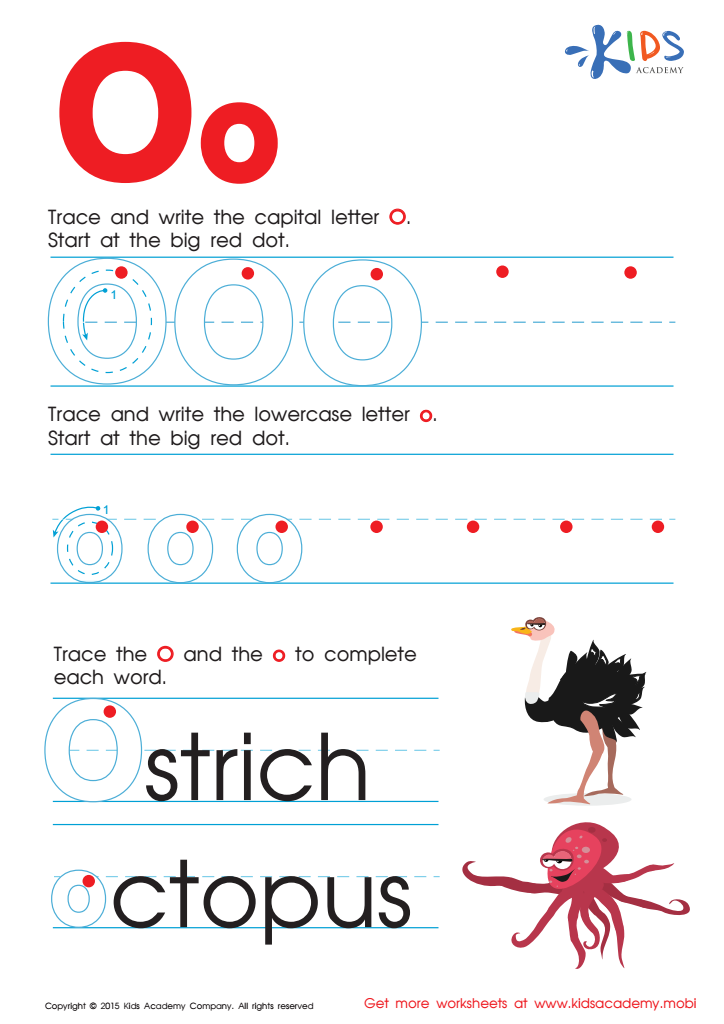

Letter O Tracing Page
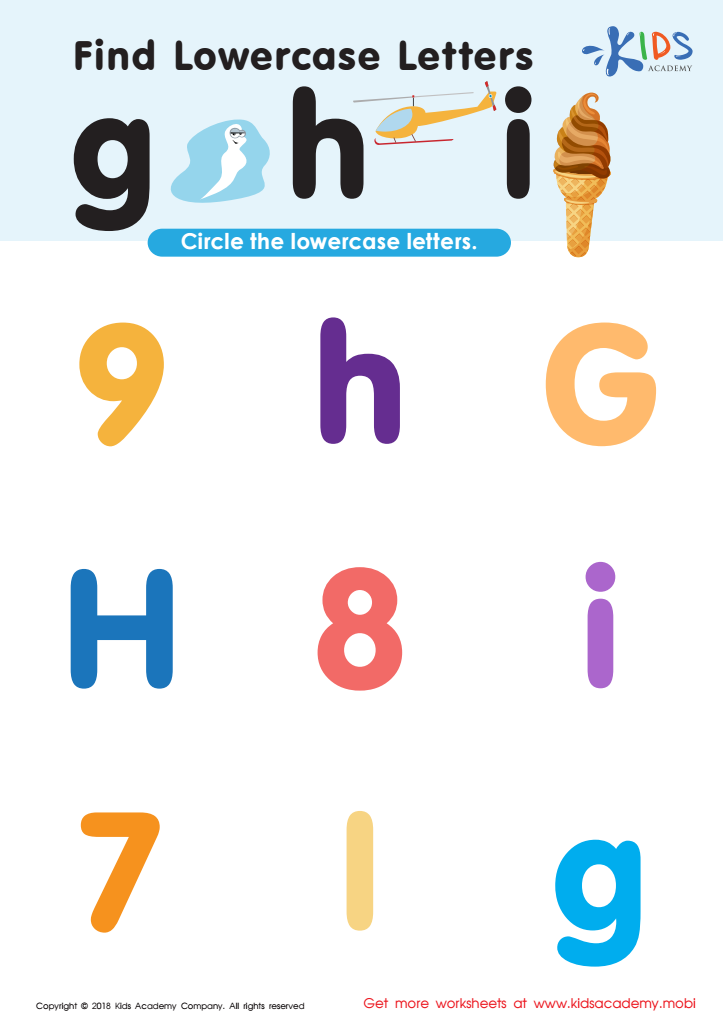

Find Lowercase Letters g h i Worksheet
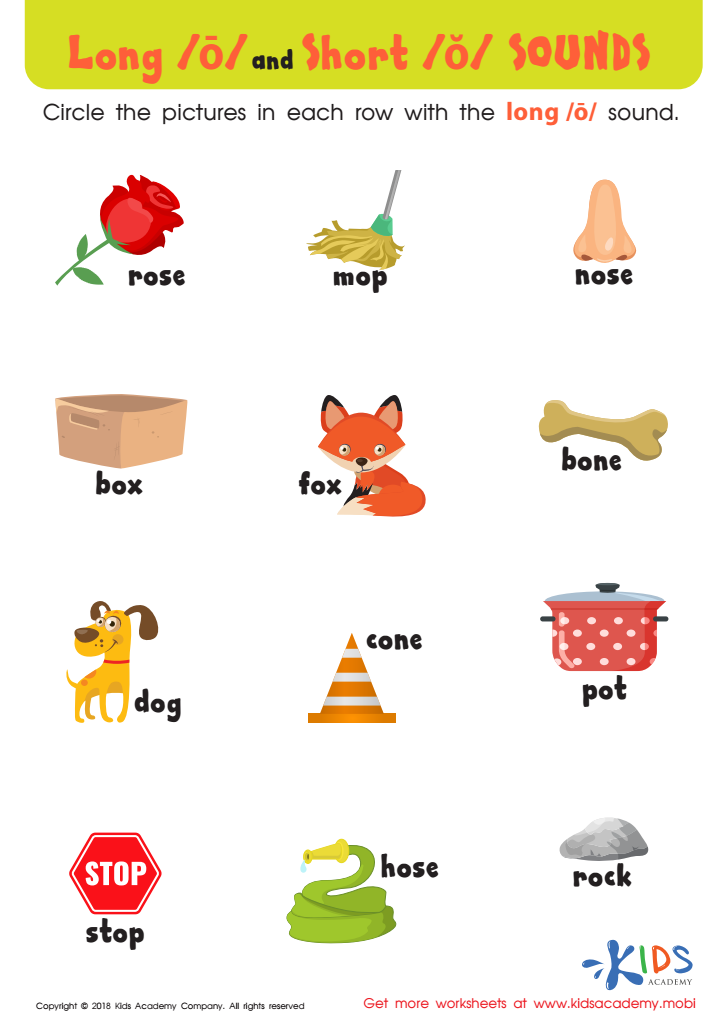

Reading: Long O and Short O Sounds Worksheet
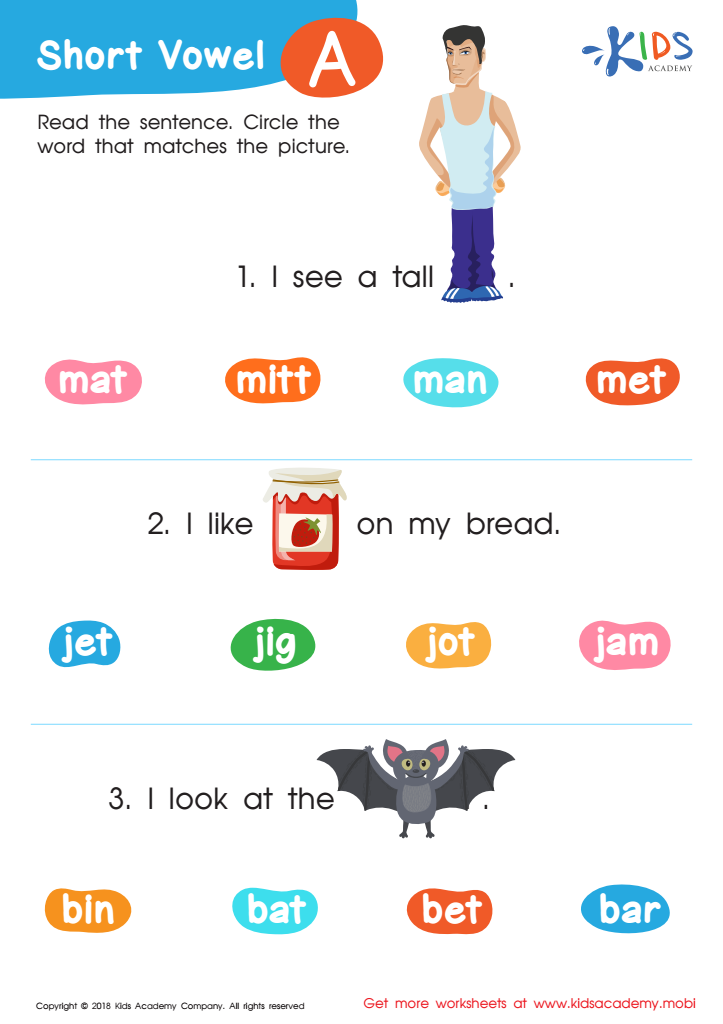

Short Vowel /a/ Worksheet


Letter P Tracing Page
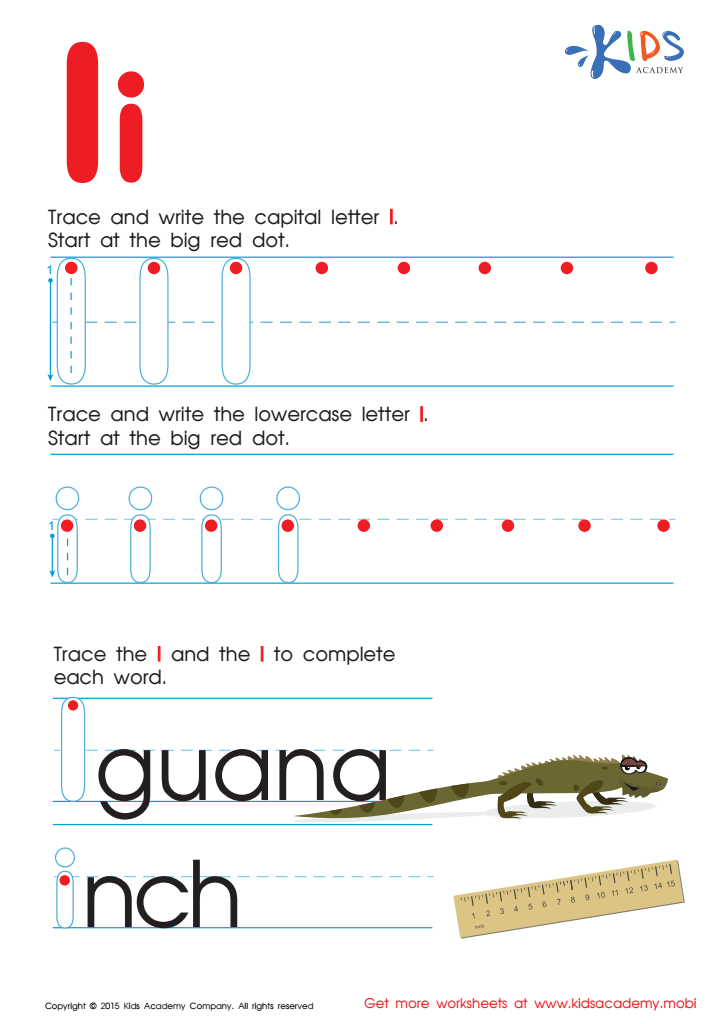

Letter I Tracing Page
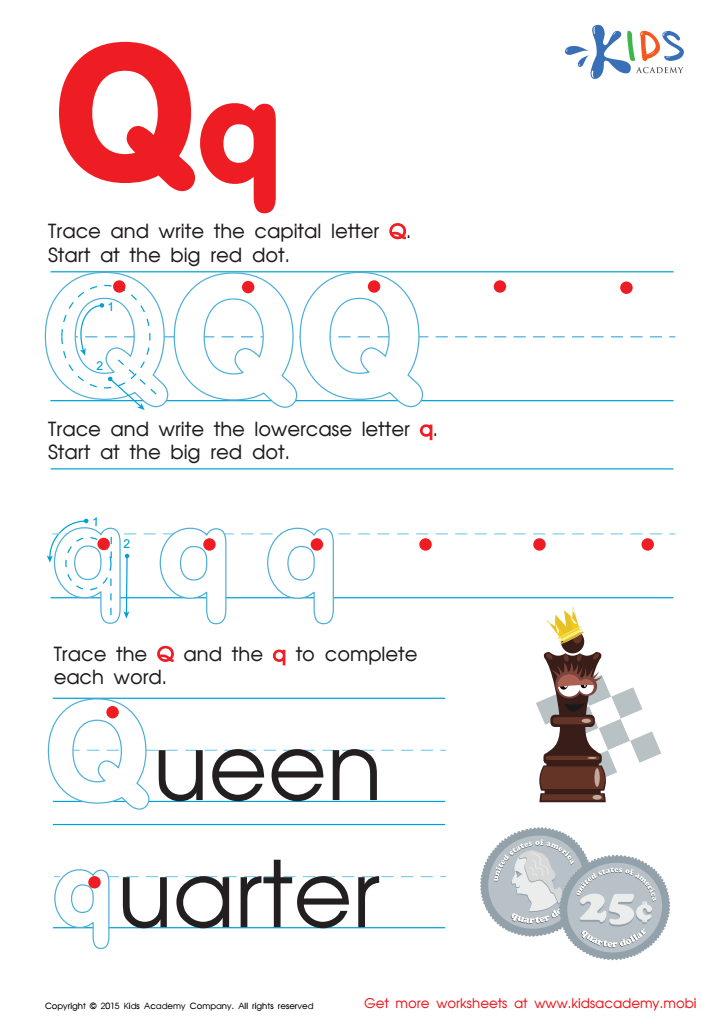

Letter Q Tracing Page
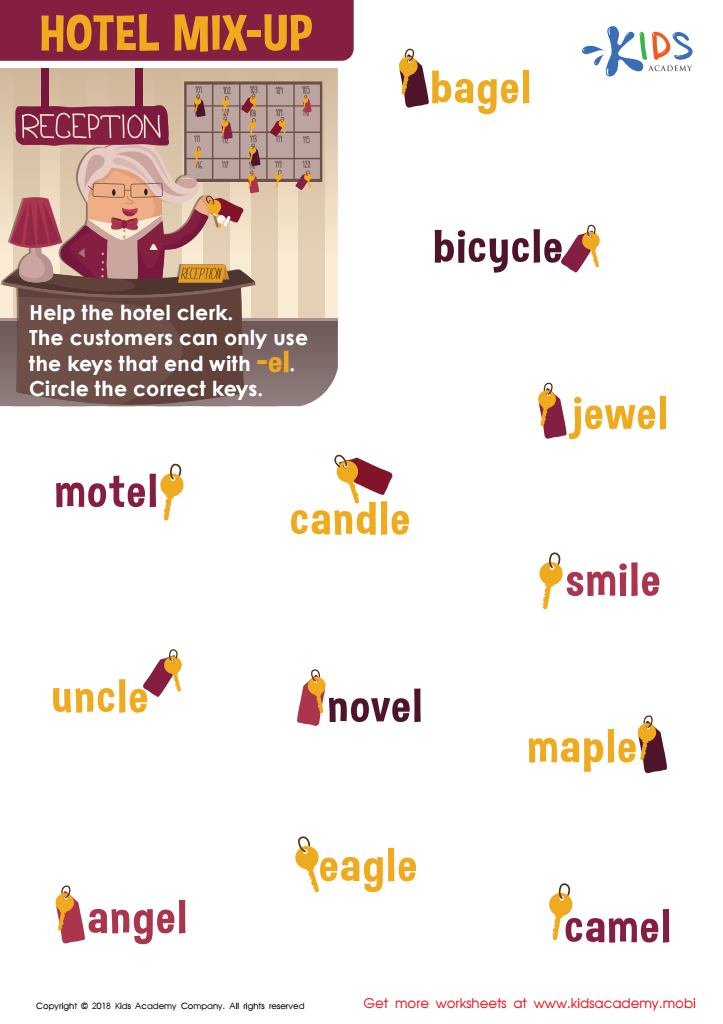

Hotel Mix-up Worksheet
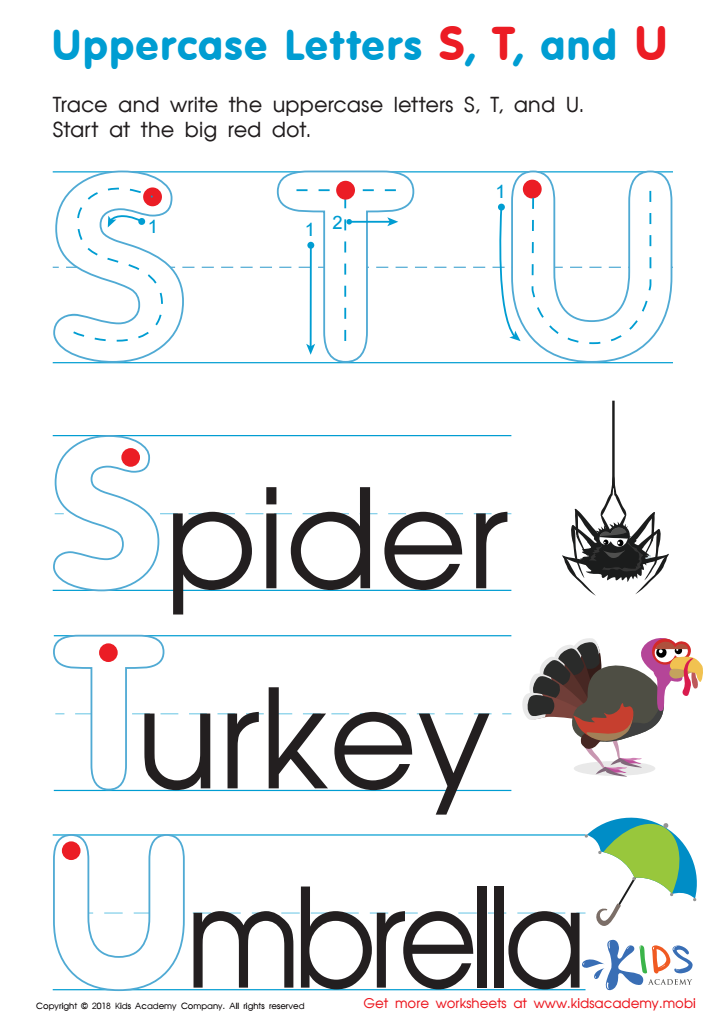

Uppercase Letters S, T, and U Worksheet
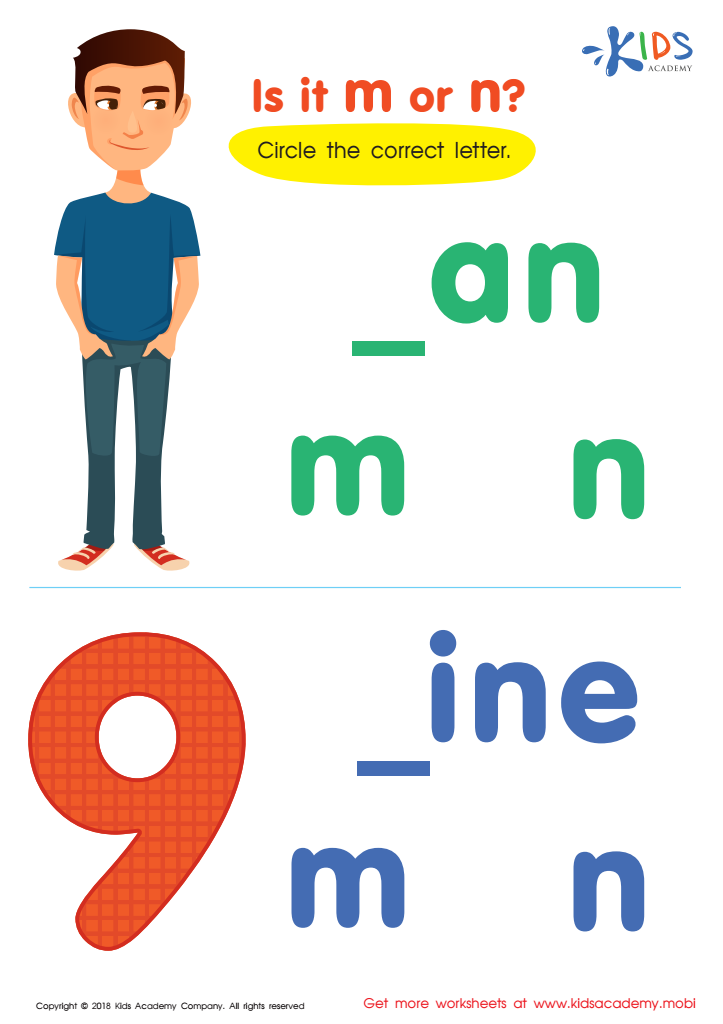

Is It m or n? Worksheet
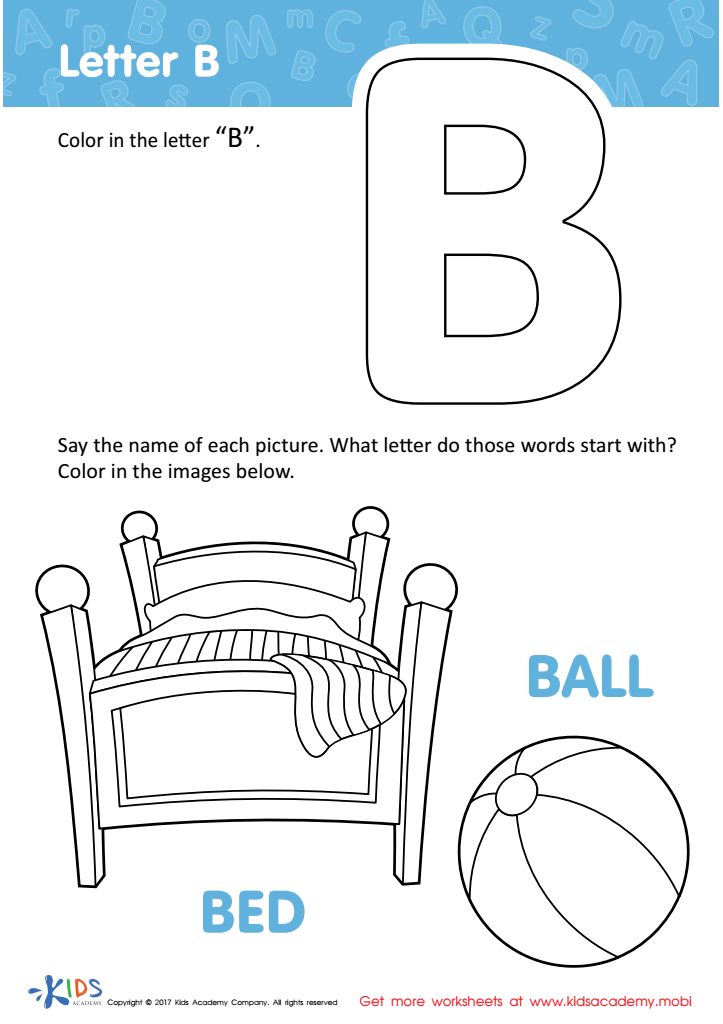

Letter B Coloring Sheet
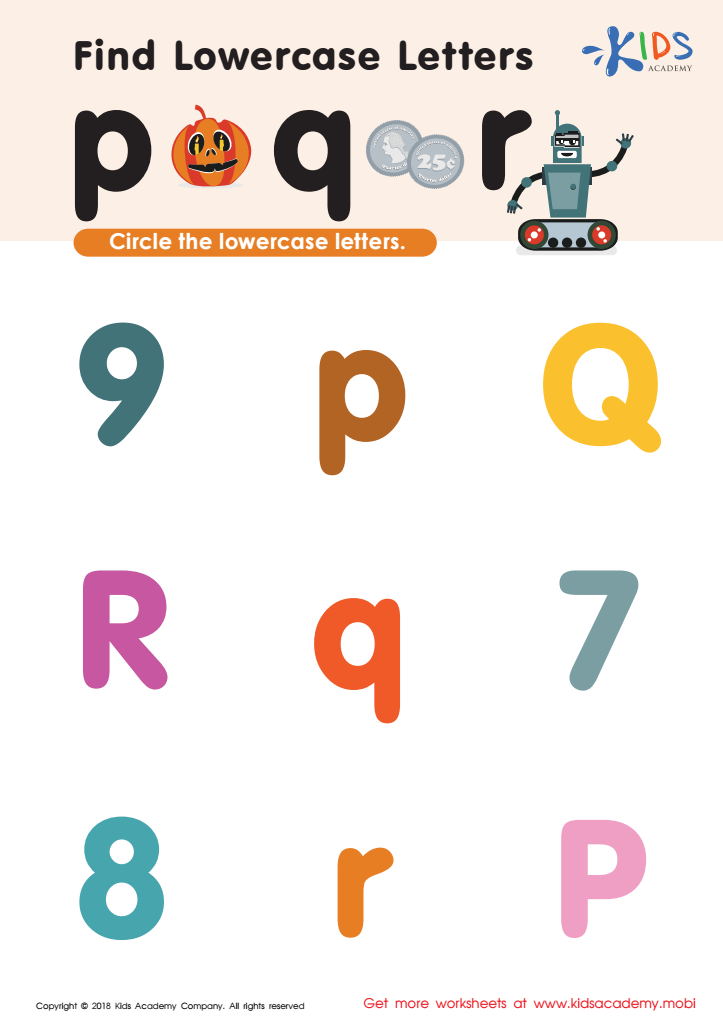

Find lowercase Letters p q r Worksheet


Letter A Coloring Sheet
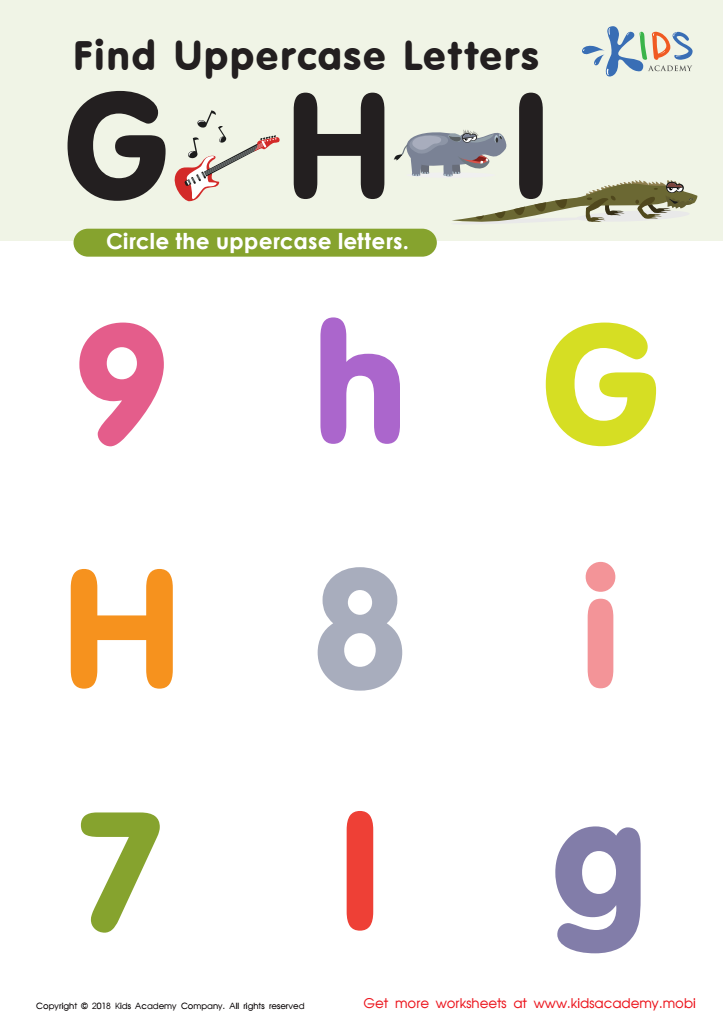

Find Uppercase Letters G, H, and I Worksheet
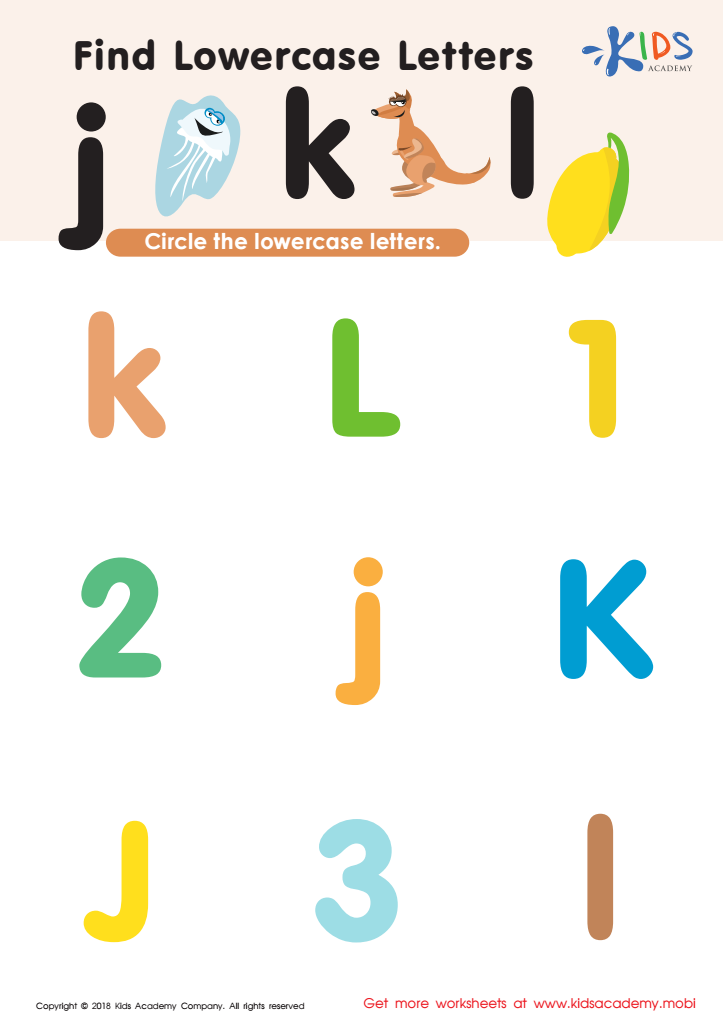

Find Lowercase Letters j k l Worksheet
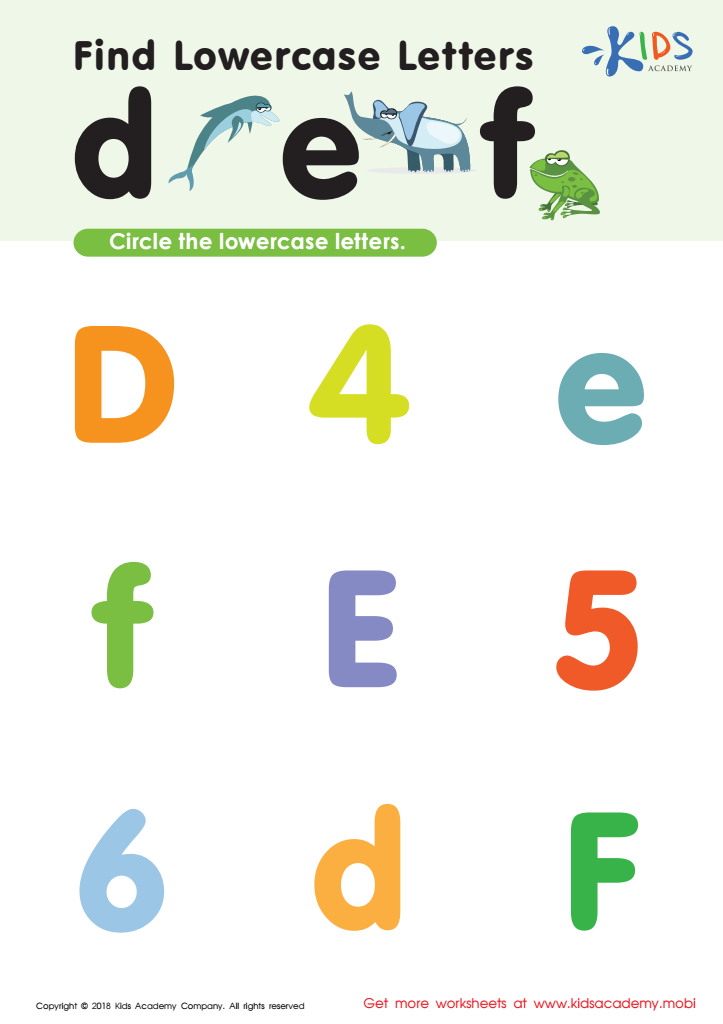

Find Lowercase Letters d e f Worksheet
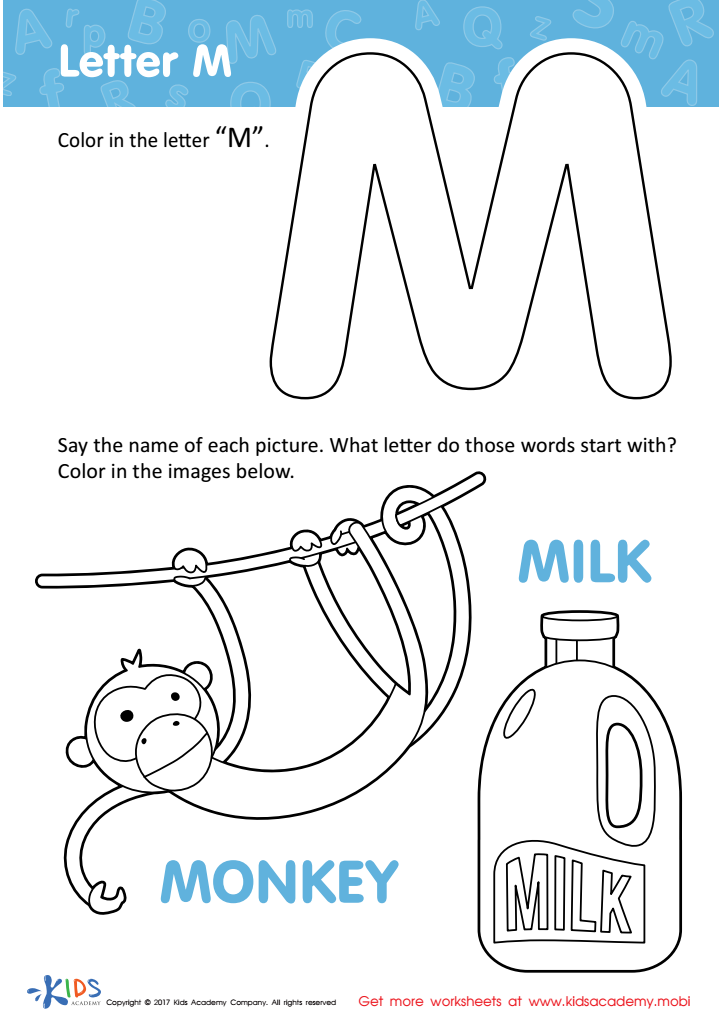

Letter M Coloring Sheet


Letter H Tracing Page
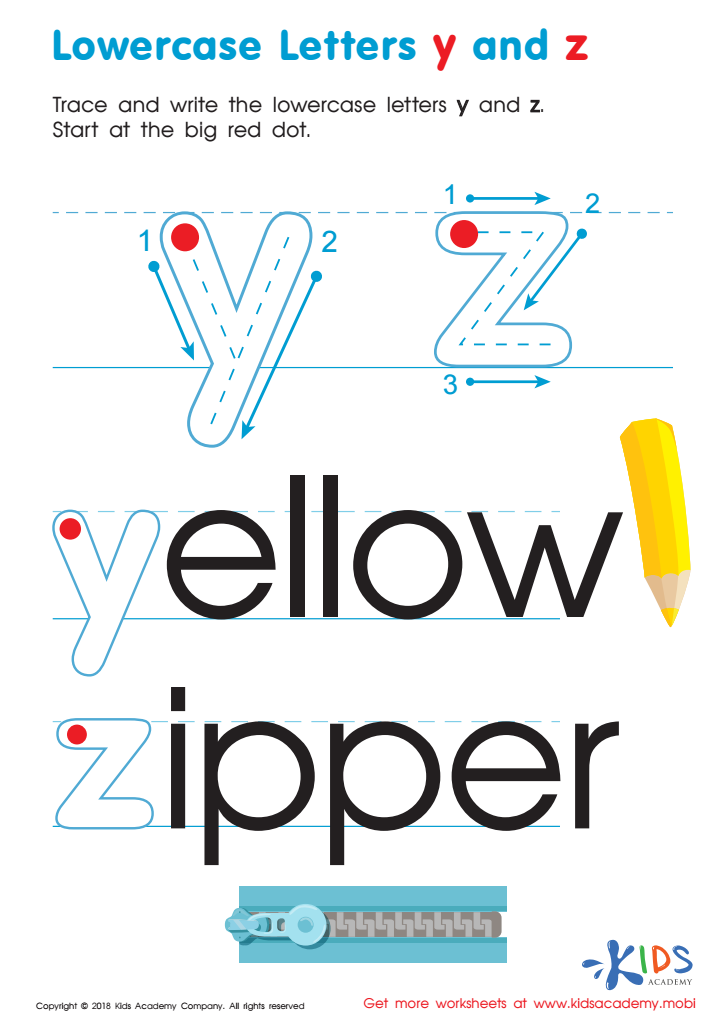

Lowercase Letters y z Worksheet


Short Vowels /e/, /i/, and /u/ Worksheet
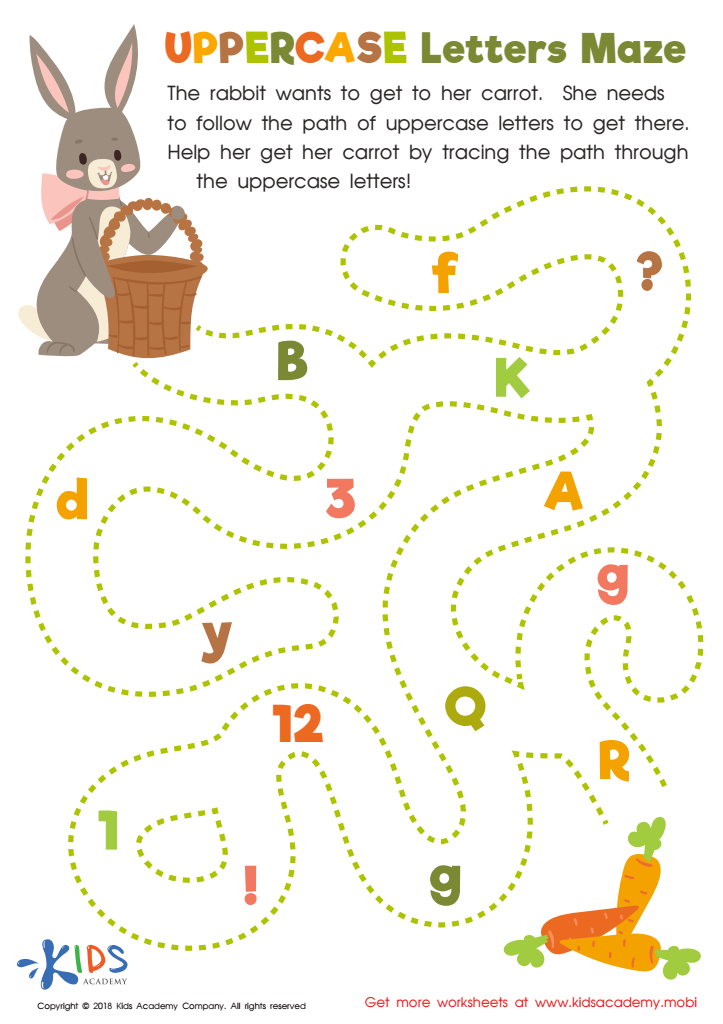

Uppercase Letters Maze Worksheet
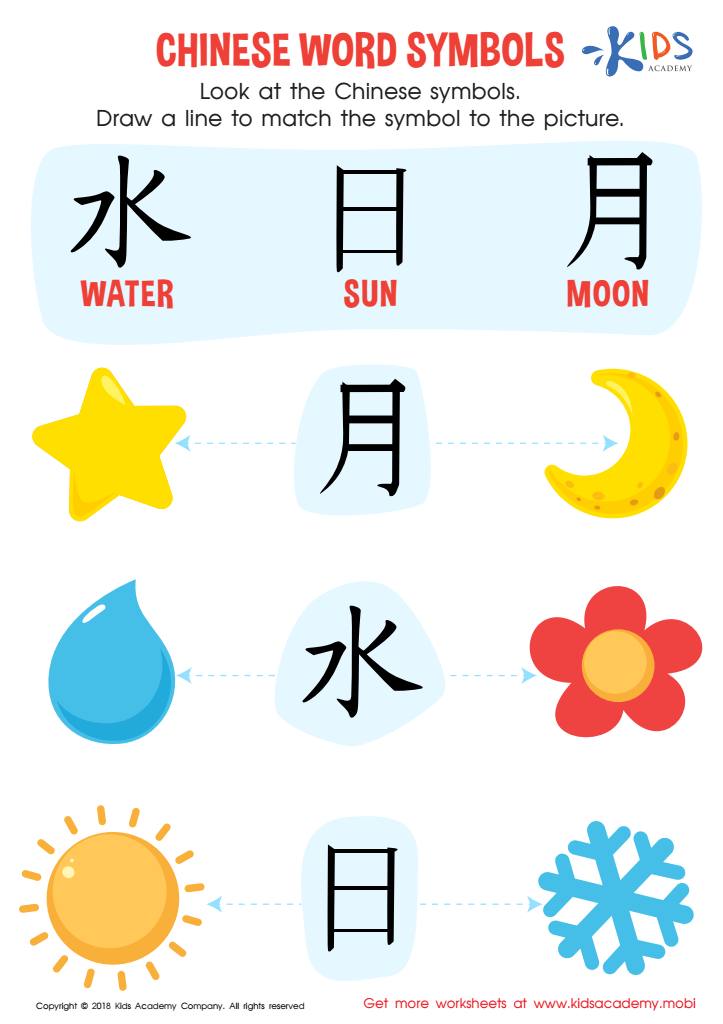

Chinese Word Symbols Worksheet
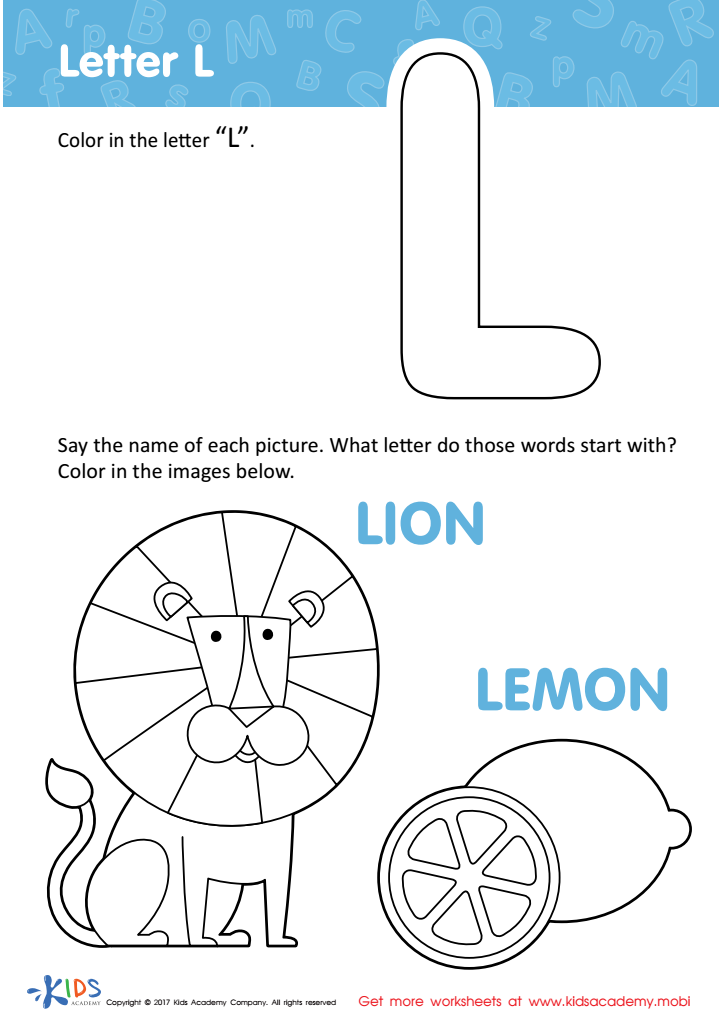

Letter L Coloring Sheet
Normal letter recognition is a foundational skill for children ages 5-8, playing a critical role in their literacy development. Parents and teachers should prioritize this skill, as it serves as the building block for reading and writing. Early mastery of letter recognition helps children understand the alphabet's structure, promoting phonics awareness and aiding in decoding words. When children can easily identify letters, they can progress to sound-letter relationships, leading to increased reading fluency and comprehension.
In addition, strong letter recognition skills contribute to overall confidence in school. Children who easily recognize letters can participate more actively in classroom activities, fostering a love for learning. As skills in this area advance, students become more willing to take on challenges, ultimately enhancing their academic performance and self-esteem.
Moreover, fostering letter recognition can create valuable opportunities for parental involvement, allowing families to engage in educational activities at home. Simple games, reading together, and flashcards can reinforce these skills outside the classroom. By nurturing letter recognition, parents and teachers work together to support children’s communication abilities, setting the stage for lifelong literacy skills and successful academic journeys. Ultimately, attention to this essential skill more significantly impacts children's overall educational success and future achievements.

 Assign to My Students
Assign to My Students




















